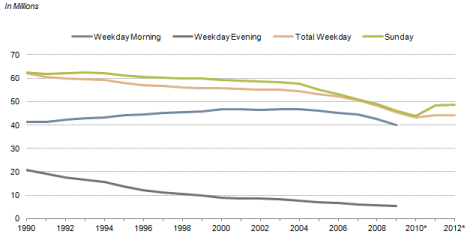
A couple years ago, Mark Cuban highlighted in his book, How to Win at the Sport of Business, quite clearly and famously, that “startups should never hire a PR firm.”
Who am I to contest a man with a track record that makes my own impact on entrepreneurs look non-existent. But, given my work in marketing, a few thoughts; in my defense, a run of successful ventures in which PR played a role – PR has an important role, it’s just rarely done well, particularly by the professionals.
And there’s the challenge, and frankly, therein is where/why Cuban and I don’t really disagree. “Actually, I have no doubt that a smart PR person can add value to a startup.” added Cuban. “The problem is that all things considered, it’s not enough value.”
Article Highlights
Why PR Agencies Fail Startups
Early ventures depend on efficiency and scale. To do that, early entrepreneurs must be quick studies; knowing as much about their industry, marketing, and business as quickly as possible. The ability to leverage such intelligence is why famed economist Peter Drucker cited that Marketing is one of the only 2 things that create value in business. Startup founders must chase disruption and innovation so great, that they are likely to fail, in such aspiration, they can’t afford to make mistakes. If you’re not valuing a marketing professional on your core team (a true marketing professional; not a customer acquisition hire), you’re building a product or service with no regard for why and for whom. Marketing is how you avoid mistakes. What does that have to do with PR?
Simply put, Cuban cites that the problems with hiring a PR firm are time and money. In my words, that there are far more efficient uses of your time given the value created by most firms.
As Stephen Robert Morse, co-founder of Skill Bridge puts it in Fast Company, “there are millions of PR pros in the world, and I won’t hire any of them.” Why? Really? he goes on:
“There are times when a PR professional can be of value to you: For example, if you run a small business that is based in a specific city, and you will only be dealing with local and regional press. In that case, there may be a few key reporters and editors who cover your relevant beat. Therefore, hiring a flack with local knowledge and strong local connections could certainly be useful.
As your company and budgets grow, when you can afford to bring in a full-time PR and communications pro, whose job it is to always keep pitching and look for media opportunities, do it. But until then, keep media management within your own realm.”
With the rise of web analytics, social media, and social analytics, Public Relations has become an art and science of Marketing. “As your company and budgets grow, when you can afford to bring in a full-time PR and communications pro, do it.” What makes it more valuable when you can afford it?
Nothing. It can’t become more valuable simply because you can afford it later. The reality is that most don’t know how to create that value and you can’t afford at your stage to make the mistake of discovering those that don’t. Entrepreneurs can, and must, engage the media directly and have no excuse not to do so. Gone are the days of schlinging an announcement to an inaccessible network of reporters. You have no excuse not to learn from the impact of media, measure the value, and KNOW if and how PR is working. So in seeking the help of a PR agency, you can appreciate how you can have every expectation that THEY do that capably.
Expect More of Your PR Professionals
In my time with startups, I’ve seen countless firms provide the following worthless insight to their work. I’m sure you’ve experienced something like this; they release an announcement or pitch a story for you, and follow up with reporting such as this:
Our work resulted in…
- Coverage by 200 websites
- 75,000,000 total potential audience
- Traffic
- 120 release views
- 350 web crawler hits
- Audience
- 600 organization views
- Engagement
- 15 total engagement actions
- 3 tweets
- 4 shares
- 7 click throughs
- A list of all the publications in which the news was featured; links if the stories are online
Is there anything there of any value what so ever? Is your time not wasted just having to read that, given the fact that the answer to every single one of those pieces of information reported is so what?
With Google Analytics, Sprinklr, People Pattern, TrendKite, and other tools at the disposal of PR firms, there is no excuse for not delivering actionable intelligence based on the coverage you’re getting. No excuse for not providing clear direction, not just in your media road map, but strategically, for the business; shedding light on who cares about your venture, why, and how.
What Startups Should Expect of PR
- Develop the plan for inserting specific announcements into macro stories, trends, and related news.
- Manage relationships with both their media contacts and yours by nurturing them all to be your contacts.
- Measure the impact of their work throughout your funnel
- Reach
- Clicks
- Traffic both new and repeat
- Indirect traffic
- Social engagement
- Conversions
- Maintain engagement with media contacts, influential social media evangelists, bloggers, and influencers – not just reporters
How does a story, announcement, blog post, or news, both in the industry at large and as they come from us, tie to the overarching story that you’re developing for us? How does that influence how you position our company, and where do we take that story from here?
What to Ask of a Startup PR Professional
Three simple questions asked of the Director/Partner:
- How much of YOUR time do we get? If you are going to hire an agency, focus on hiring the professional – the individual. If that individual can be efficient by outsourcing some of the tasks to their team, fine. – How much of your face will we see?
- What should we expect to see? The answer had best not be results in a few months, “It takes time to develop relationships.” You are hiring a firm because they have the relationships. The right story gets placed within weeks and if said firm is already familiar with your industry and market, they are already nurturing related stories with the press.
- What do you consider success? Avoid anything that sounds like media tours, interviews, or press releases in the right places. Those are the day to day, minimum, expectations of any PR firm and if that’s all they provide, get an intern. You want the story, owned relationships, measured business results (not just metrics), and management of trends, people, and priorities.
What Should PR Agencies be Reporting?
Hopefully, you are painting a picture in your head about how a PR agency shouldn’t simply pitch stories. To deliver the value that makes them worth hiring, they need to be part of your team and as such, they had best be providing meaningful data and insights:
- What sites, from within those you mentioned we have coverage, are relevant?
- How much of potential audience is direct readership and not just syndicated page views (i.e Yahoo Finance syndication)
- Who were the authors? How do we contact them? How should we contact them?
- Distinguish volume between audience, readers, and traffic
- Audience is the size of the publication or media site. Their having 10,000,000 readers is nice to know, and helpful compared to coverage by a site with an audience of 100,000, but at the end of the day rather meaningless.
- Readers reflects the count of individuals that actually read the article. Don’t be fooled that this isn’t available, websites have analytics and web analytics can be correlated to offline readership.
- Traffic is NOT traffic to the article, as it’s often conveyed. You want to know traffic both TO the site and BECAUSE of the article. These are two distinct metrics:
- Click throughs to your website from the article
- Net increase in traffic to your website because of the coverage. An article read will result in Google searches, URL visits (“direct traffic”), and volume through social media as well as clicks from the article itself.
- Question other reported “volume” numbers. I’ve seen:
- Release Views: This is how many views the article on the release wire received. That is, the total count of page views on something like PRWeb. Not only are these irrelevant views, as those that receive a release are NOT your customers (unless you happen to have a PR based startup), but all that matters from those “release views” is coverage, audience on those media sites, readers, and traffic.
- Web Crawler Hits: Always amusing. As in Googlebot hits?? Briefly, so as not to presume you know what a web crawler is…. a web crawler is the technology that indexes your site for search engines. What value, precisely, is there in knowing that our coverage was seen thousands of times by robots?
- Engagement which measures interaction with the coverage
- Retweets (by whom, rank ordered by relevance and influence)
- Shares (by whom, rank ordered by relevance and influence)
- Likes (by whom, rank ordered by relevance and influence)
- Increase in Direct traffic is likely a result of the news
- Related Searches (related terms) AND increase in brand searches likely a result of the news
- Increase in overall social traffic, likely a result of the news
- Conversions influenced by the news. This is an important distinction as most agencies will point out when you ask for this that they can’t tell you how many leads/sales you got because of news. Bull. It’s really simple: take a benchmark of how many conversions you had yesterday, a week ago, a month ago, and last year. Compare today vs. then and adjust for any variables such as the average increase in your conversion rate over time. The result is most likely because of the press and while not an exact science, your PR agency should be reporting this so that you can learn from the impact and make an informed judgement based on everything else you have going on.
- Lastly, industry benchmarking that shows how you, the firm, and your coverage is performing relative to other like announcements and stories. This must be done not just with comparable industry companies but since you are a startup, compared to other like startups. 1-100, how did this news compare to others across:
- Coverage
- Audience
- Readership
- Traffic
- Engagement
- Conversions
Why Capable PR Agencies Are Necessary
I believe, evidence of the decline of the effectiveness of PR agencies is evidenced in the decline of the audience of the media. While we can certainly agree and trace our disuse of print press and media brands to the rise of technology (giving us on demand access to news we choose), one has to wonder if the quality of reporting hasn’t also suffered. Has news become poorer as it has become more difficult to keep up, because of technolo gy?
gy?
You have to make a leap with me to follow the train of thinking. With the increase in the sophistication in technology and business, reporters are dependent on Marketers and PR professionals like never before to keep them informed. Let me clear, this is not a criticism of reporters, who continue to cover with excellence second-to-none that of which they are aware, and with the sophistication of which they are informed, this is a challenge to the rest of us.
If the fuel that keeps reporters informed can’t keep up with technology and entrepreneurship, how conceivable can the reporters? Heck, just because we’ve gone from 100 million people to 300 million people over the past decades, you can appreciate how the job of a handful of reporters become unbearably difficult without the support of sophisticated marketing and PR professionals enabling those reporters to keep up with the mere increase in volume. Thus, evidence of the decline in quality of PR, and why you need to be careful, is the decline in quality of news, driven by the inevitable decline in the ability of news to cover things effectively. The more pointed evidence of this happening is the very advice that startups shouldn’t hire PR firms – because the press needs to talk to YOU to fully comprehend what’s going on so that they can continue to offer the most in depth and critical point of view possible.
As I’m sure you can imagine, as was the case when I implied that the press needed to evolve, I’m likely to get some flack for such strong opinions but keep in mind from where I’m coming: I’m affirming that PR is invaluable to startups. Ventures are broken on the backs of the media and it’s the professionals who understand what PR, today, really is, that make such ventures successful. As Mark Cuban alludes, what might be best for you is doing it yourself but that’s simply because, I believe, too many PR firms fail to deliver the value they’re capable of (no, responsible for) delivering. I’d like to encourage you to realize what, I think, he and I both are saying: that there is a cost/benefit exchange in media and public relations and the challenge is that most firms, are going to waste your money because they don’t know how to deliver the value startups need.
Know what you can and should get from PR agencies so that you can benefit most from their invaluable expertise. When the right match occurs, everyone wins: more efficient use of your time, more coverage of your venture, more sophisticated reporting about your industry, and more readership of the press as a result of better quality and more comprehensive coverage of what’s going on in our world.









